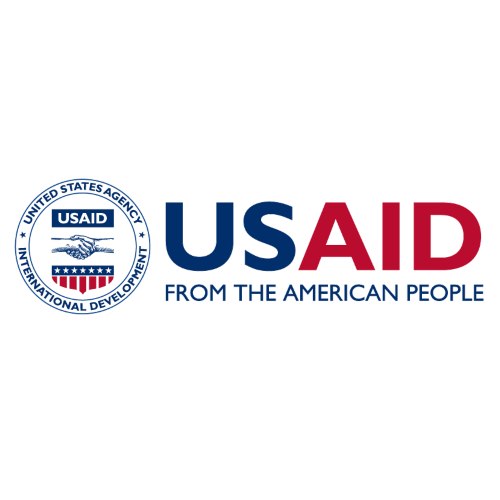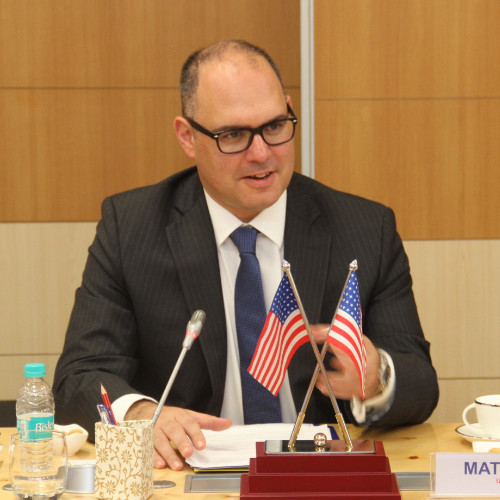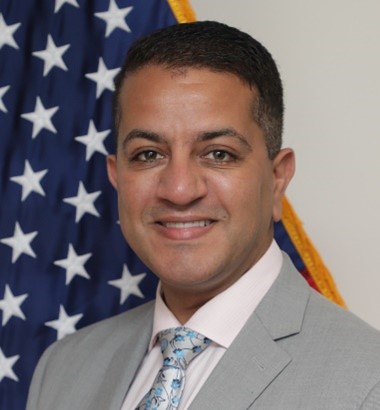USG Engagement and Delivery of Disaster Resilient Infrastructure Around the World
Day 1, 4 May 2022, 1900 - 2030 IST
Session Annotation
This session will analyze and share past successes and best practices adopted by key United States Government agencies in promoting disaster resilient infrastructure. The session will highlight the past and ongoing efforts of the select US Government agencies towards promoting disaster resilience. The session will focus on innovative solutions adopted, capacity development activities undertaken, knowledge networks established, and regional and global collaborations promoted by US Government agencies for developing disaster resilience.
Representatives from the following US Agencies will share their experiences:
- Department of State Charge d' Affairs- Brief Overview
- U.S. Army Corps of Engineers (USACE)
- U.S. Forest Service (USFS)
- U.S. Commercial Service
- U.S. Department of State
- U.S. Department of Energy
- Moderator- USAID
Session Overview
Global Climate Change has exacerbated the frequency and intensity of disasters. The world has been witnessing increasing numbers of and more severe disasters resulting in damage to key infrastructure systems, disruptions in supply of critical services and rising economic losses. Lack of infrastructure resiliency results in a feedback loop whereby adverse disaster and climatic shocks, such as more severe flooding and sea level rise, compound the impact of disasters. As climate change is likely to result in rise of sea levels and altered precipitation patterns, infrastructure and communities in cities, coastal areas and riverine plains will become increasingly susceptible to flooding and storm surges. Adaptation, retrofitting, and the construction of new resilient infrastructure systems is necessary to mitigate the adverse impacts of disasters and climate change. Thus, there is an urgent need to focus on building resilient infrastructure assets as well as integrated systems that accelerate the transitions to net-zero emissions over the coming decades.
Many US Government agencies have invested in building the resilience of disaster-prone communities and infrastructure across the globe. There are excellent resilience models including nature-based solutions (NbS) for enhancing infrastructure resilience. US Agencies have gained a great deal of understanding of impacts of disasters and climate change on infrastructure and perspectives and insights of how the complexities are likely to unfold in future in the changing climate. Other countries and partners of CDRI can benefit from the experiences of US Government Agencies in strengthening the resilience of communities and infrastructure systems.
This session of ICDRI proposes to bring together US Government Agencies that have worked extensively on resilience building of infrastructure and communities across the globe to share experiences and present perspectives on the opportunities and challenges for building a climate and disaster resilience of communities and infrastructure systems. Exchange of knowledge, tools, methodologies, approaches and best practices by US Government agencies will foster greater cooperation and collaboration between US Government agencies and CDRI Member countries for climate and disaster resilient infrastructure. The Session will offer opportunities to other countries to learn from the innovative tools, mechanisms and best practices that could be adopted to enhance infrastructure resilience as well as prepare for and respond to major disasters.
The Session will try to answer the following questions:
- How can US Agencies support the achievement of global sustainability, climate risk adaptation and resilient infrastructure agendas?
- How can CDRI member countries and partners collaborate with US Government agencies on tools & technology, approach & methodologies, capacity building and research to enable resilience of communities and infrastructure systems?
Speakers
Partner Organizations




.jpg)
.jpg)


